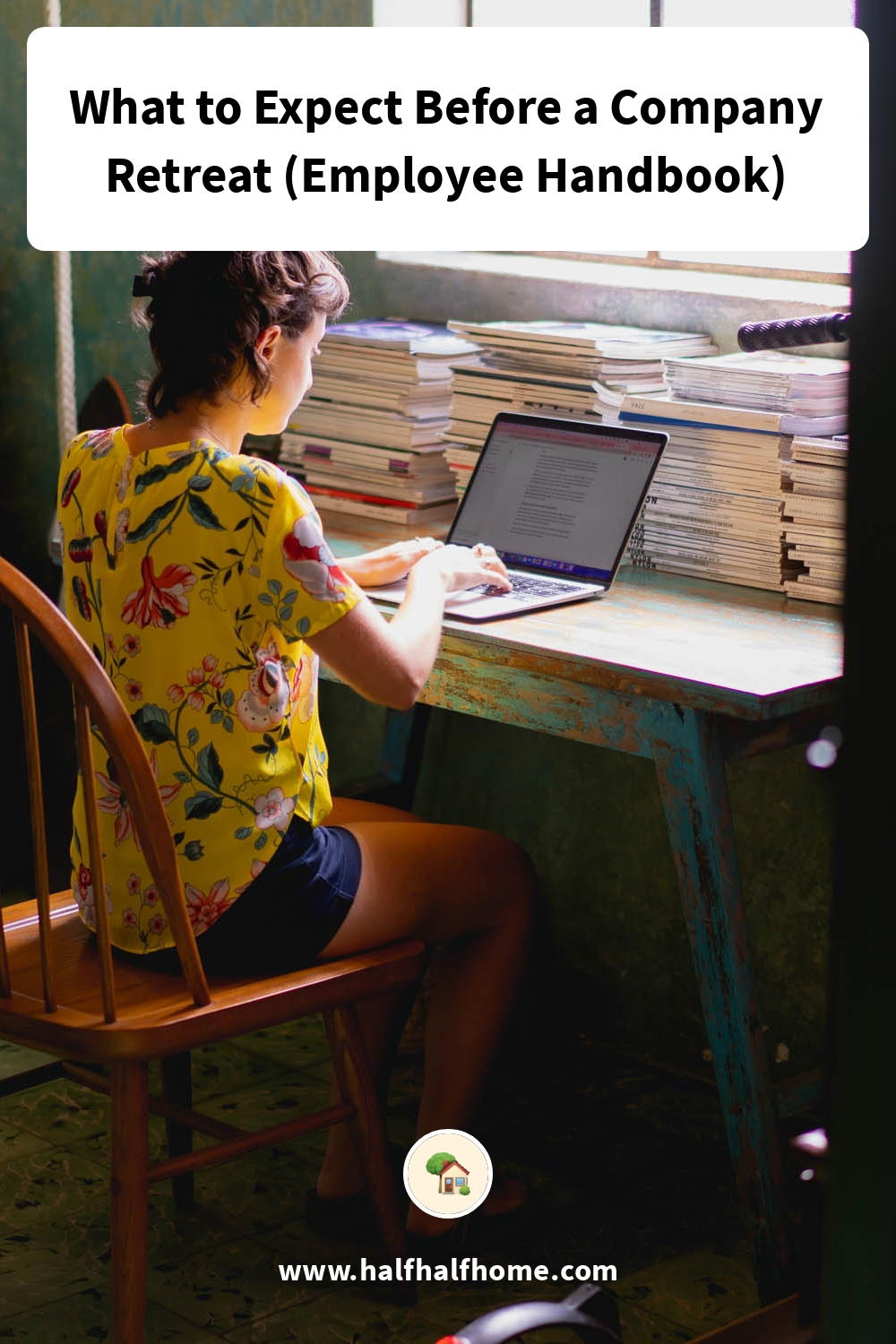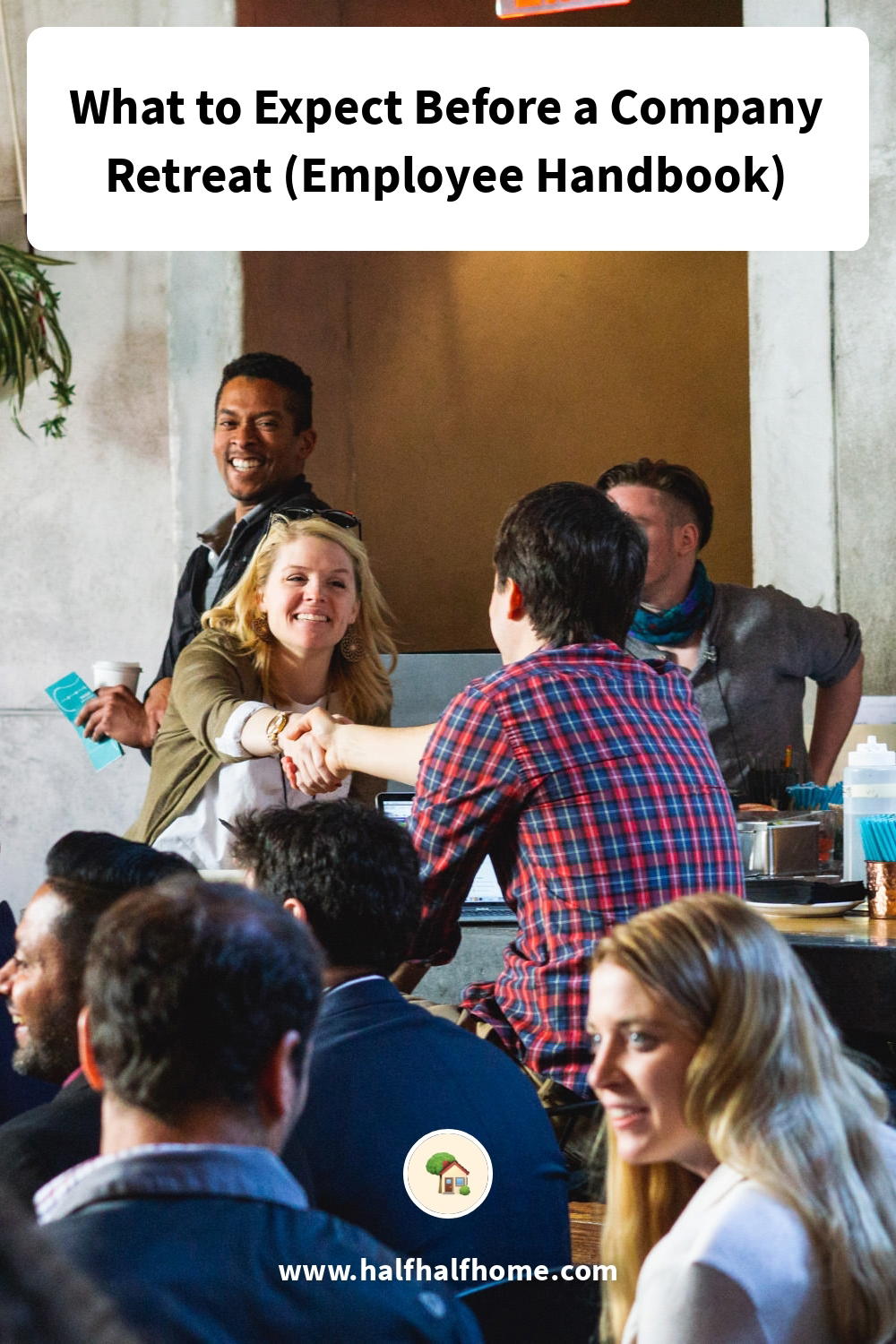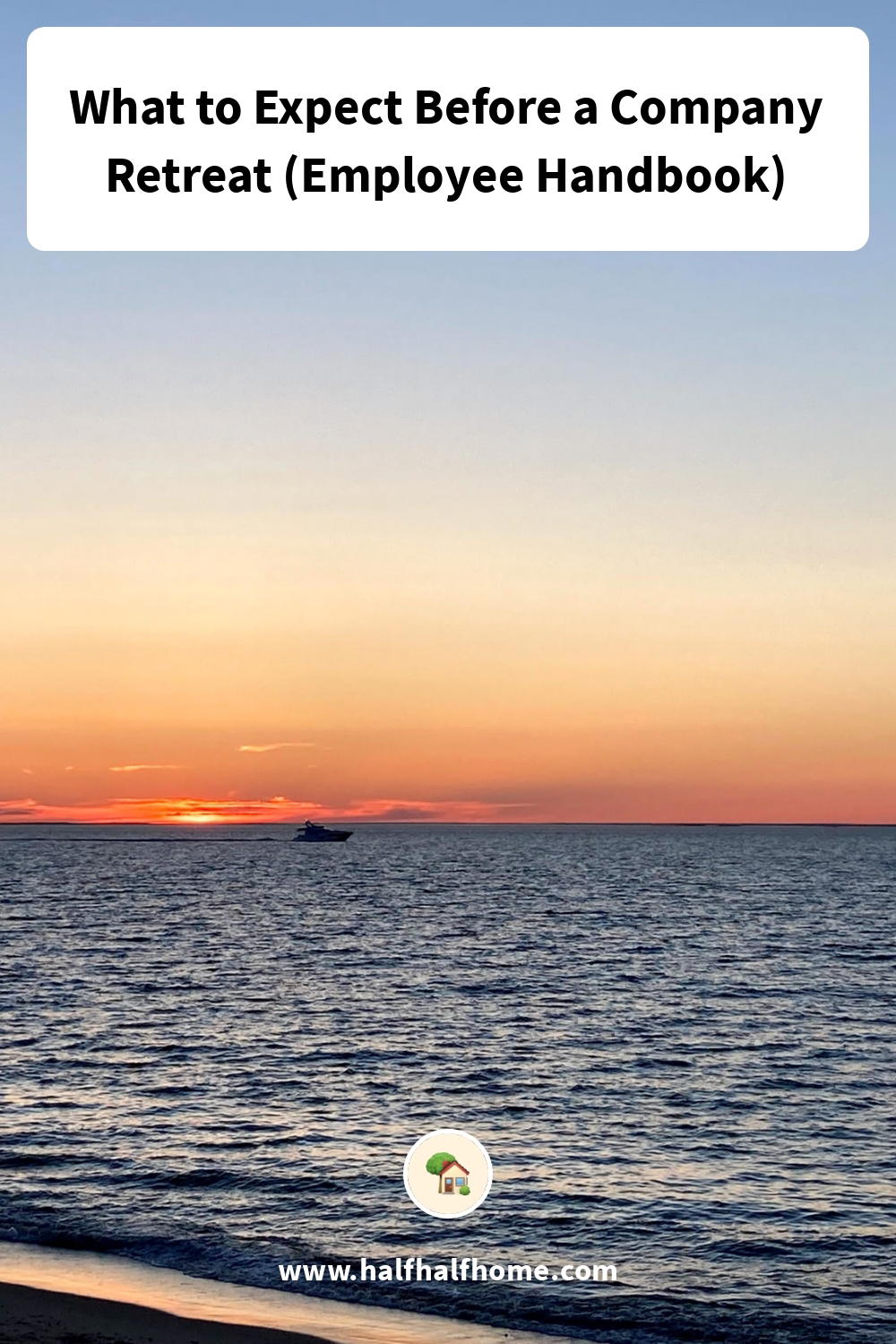What to Expect Before a Company Retreat (Employee Handbook)
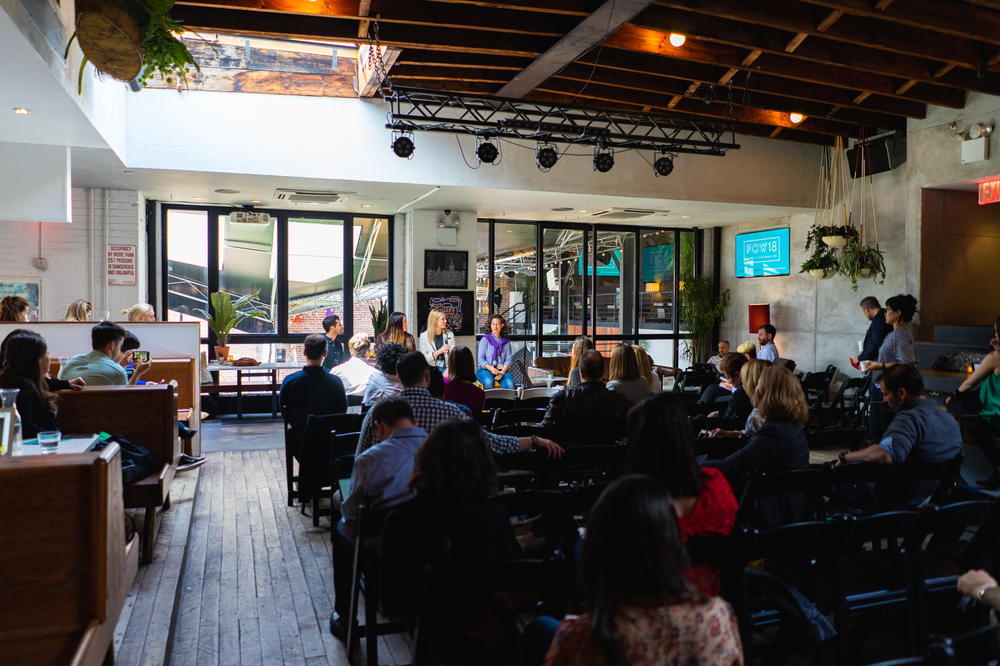
Why are company retreats important for remote employees? Find out what a corporate retreat is, and how you can be well prepared to meet coworkers in person at a cool destination.
This article may contain affiliate links. We earn a small commissions when you purchase via those links — and it's free for you. It's only us (Becca & Dan) working on this website, so we value your support! Read our privacy policy and learn more about us.
As more and more people start working remotely and as companies look to add new benefits, staff trips or (company retreats) are becoming more popular.
If you’ve only ever worked remotely for your company, then corporate retreats are a great opportunity to meet your coworkers in real life (and you get to see how tall everyone is!).
While some companies find that a model closer to a hybrid model of working, where monthly or quarterly visits may happen in person at the office, other organizations are considering that a once-a-year company destination retreat is the solution for fostering teamwork and relationships among coworkers.
In this article, you’ll learn a little about what corporate retreats are, and what to expect while you are at one.
Please note that this guide is not in regard to planning a corporate retreat; rather, we’re aiming to help anyone who’s deciding if they should go on a corporate retreat that is being planned by the company.
Let’s get started!

What is a corporate retreat?
A corporate retreat is an umbrella term for a designated time and place when employees at a company or organization can meet in person, rather than staying connected online.
There are a few types of corporate retreats:
- Some corporate retreats could be one day only, or even half a day, on site at a company office, headquarters or local venue.
- Corporate retreats could be a work-focused trip during which employees work on projects, strategy and team-building in person at a given destination. For example, I have a friend who went to a corporate retreat with a small company at a woodsy destination in the US at which everyone worked on team-building and trust exercises.
- Corporate retreats could also be more like a gift to all the employees from a company. They could be focused on having fun, making friends, meeting new colleagues in person and having a memorable time. If these types of corporate retreats are held at a resort, a hotel or even a cruise ship, there can be ample time to relax.

What happens at a corporate retreat?
Typically, corporate retreats contain a mix of programming including (and not limited to) team-building, learning about new annual goals and broad company updates.
Retreats are a great way to take yourself outside of your day-to-day work schedule, and the retreat can inspire you to hit your new company goals by having a refreshed positive outlook on the company’s mission.
You can expect activities planned with your coworkers, smaller team meetings and one or two larger all-staff meetings. And sometimes, there are even guest speakers.

What should you pack on a corporate retreat?
Pack fewer things than you think you need. As a starting thing to remember, you usually are not with your coworkers at a destination far from the office, where you’re all kind-of sort-of in vacation mode, but still at work. The last thing you want is to be remembered as the colleague who packed way too much and came with a huge suitcase.
We have a few recommendations of how you can pack minimally for a corporate retreat with a capsule wardrobe that won’t make anyone think, “Didn’t he/she wear that yesterday?”
Here are some ideas:
- A single pair of pants. We recommend versatile flattering jeans like these jeans from DU/ER, for men and women.
- A merino wool hoodie that wicks odors (so your colleagues don’t think you’re smelly) and also looks decent. We recommend the Aviator merino wool hoodle, which comes in both men’s and women’s, and is a good layer to wear on a flight.
- An essential black tee that you can dress up, or dress down, and wear twice. We like the essentials line from Public Rec, which you can wear casually, or dress up with a blazer.
- A few minimalist T-shirts and pairs of “decent-looking” sweat apparel for sleeping in, in case you have to share a room with a coworker and not be wearing your ratty T-shirt from college. Check out our product recommendations by Mott & Bow.
- A handy daypack that can be used as a personal item during transport and also functions as a nice, sleek day bag. Look no further than the 11L day pack, from Away Travel.
- Are you part of the company leadership and is a casual suit going to be required? Don’t fret about the dirty work, as we show you how to pack a suit for travel.
- Lastly, travel packing cubes keep everything neatly folded and compressed.
- If the corporate retreat is at a warm tropical destination like a resort, take a bathing suit. If you don’t want to bare all in front of the boss, go for a one-piece bathing suit, or wear a sundress to the pool or beach and dip your feet in the water.
Especially if you work for a startup, there many be an opportunity for everyone to check into their email, have meetings in person with other coworkers and stay connected with work. For that, I suggest checking out my packing list for working remotely and traveling so that you can double-check on everything you need.
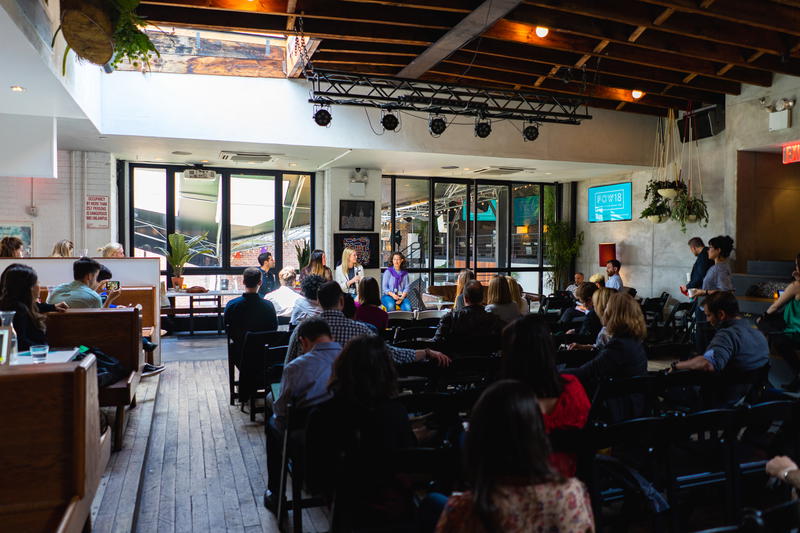
What can you expect to get out of your trip?
Regardless of where the corporate retreat is held (whether a location close to home, or across the world), you can get more out of this trip than simply a professional experience.
A corporate retreat is a time to connect on a personal level and feel pride for the company as a whole.

A new professional bond with your coworkers
While working remotely for a remote-first company, it’s easy to have a strict professional relationship with your coworkers.
When compared with working in a more traditional office setting, you miss out on team lunches, happy hours and personal chats throughout the office, when you’re working from home.

While you are on a company staff trip, it’s inevitable that you’ll talk about more things than just “work.”
This is your opportunity to learn more about the people who you work closely with. You can chat about family, significant others, hobbies, vacation plans and things you like to eat or cook.
The bonds that you create can help strengthen your professional working relationships.
Increased morale
It’s easy for company morale to get low when working in a distributed team; it can feel like there is nothing to look forward to and it feels like there is no escape.
At least for me, company culture is very important. At all of the places that I’ve worked, there has been some sort of culture committee to ensure that people are enjoying their work settings.
At one job, there was one day each month that was a “floating day.” Everyone could go to a workout class together, go to dinner or go on some other local adventure.
Now, being remote, it’s not as easy. Work lunches when you sit at your desk aren’t as entertaining because it’s basically the same thing that you do every day.
Company retreats are usually something that you can look forward to each year (or even each quarter).
After the trip, the passion for your job should be reignited. If it isn’t, then, maybe it’s time to find a new job.

An understanding of the divide of talent across the team
When you get to know someone on a more personal level, you get to learn what other skills they have. Maybe Bob from accounting really has a passion for content writing. Who knows, Jim from design has been working on his programming skills.
Fun fact, I worked for a company when the designer was actually learning how to program in his free time. He’s spent three years working on a iOS application!
These theoretical and real examples are something that you’d organically expect to learn about your coworkers on a company retreat.
While they might not have any immediate day-to-day changes with how you work, they can help structure and balance your teams more efficiently.
Relaxation
The purpose of a corporate retreat isn’t 100% business.
You typically will have some free time for yourself. Depending on where your trip is, you can go for a walk and explore, sit by a beach or pool, read a book or whatever! This might be a small chunk of time in which you can get a feel for traveling solo without all the worries attached to traveling alone. You can come right back to the hotel and see everyone!

How frequent are company retreats?
You can expect a company retreat to happen at least once per year. It’s common for there to be smaller team get-togethers once every quarter, or once every half.
Every company is different, though.
For me, my company (yes, I work full-time) meets once per year at a new location. My smaller team has events planned once every six or so months. We also have a remote holiday party and other smaller remote events throughout the year.
And for reference, the company I work for is about 100 people.
For Becca, she works at a startup of about 10 people. Because they are all so small, they don’t offer any traditional company retreats. They meet more infrequently based on everyone’s schedules. Because there are only a few people to coordinate, they have flexibility to meet wherever and whenever.

What if you can’t go on a company retreat?
Company retreats are often held in central locations that everyone can access. With remote work, we all have the flexibility to work wherever we want.
Company retreats respect that decision and are typically held in an inclusive location.
However, sometimes not everyone can access locations based on their own personal situations. Maybe you have small children and can’t find anyone to watch your kids. Maybe you have a visa restriction if the retreat is international. Maybe you are unable to travel via airplane.
Whichever the reason, you may not be able to (or don’t want to) participate in the corporate retreat.
In this situation, you should talk with your HR department or your manager and have this discussion.
It can feel unfair if there is not an option for you to participate in the trip with all your coworkers. You can ask if there are accommodations for you to join certain events remotely.
If I were in this situation, I would also ask for some personal time, which doesn’t count against your normal PTO, to recharge in your own way.

Should you go on a company retreat?
Ultimately, this is up to you.
Based on all of the above information about in-person company retreats at a cool destination, you can make the call! You shouldn’t feel forced to go on a corporate retreat or company trip.
Knowing all of your options as an employee and member of a professional organization or corporation should empower you to make a decision that feels right for you.
If you do get to go on a destination company retreat, make sure to contact us and let us know how it went!

